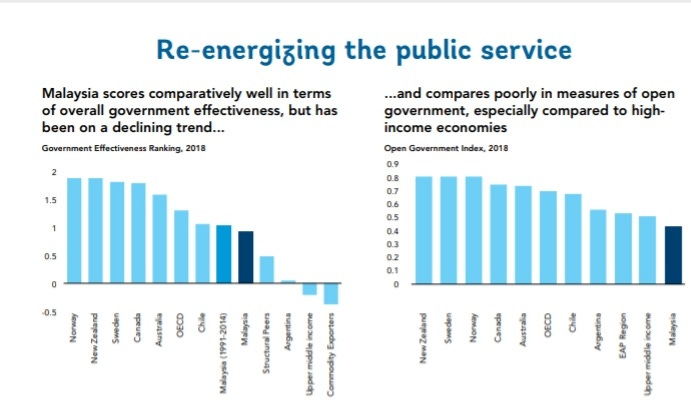20th April 2023
1] INSTITUTIONAL REFORMS
There are various reasons why institutions strongly affect the economic development of countries. Their activities and implementation of national policies often have immense impact upon society at all levels. In a way, by determining the frameworks in which economic exchange occurs, instititions shall determine the volume of interactions available, the benefits from economic exchange and the form from which they can partake. The ramifications and effects of good institutional reforms shall ensue a better economic development advancement for a nation. Therefore, one of the most important aspect of institutional changes is to understand the needs of the public, which will constructively lead to bottom-up policy development and implementation.
As an instance, reforms related to land ownership, crop subsidies, and selling of farm produce are called institutional reforms, too. These reforms ensure a holistic development of the farming sector, making agriculture a profitable activity, and improving socio-economic conditions of the farmers and titleless settlers in the mountainous hinterlands of Sarawak and Sabah.
2] ECONOMIC DEVELOPMENT
Institutions also have an important redistributive role to play in the economy – they make sure that resources are properly allocated, and ensure that the poor or those with fewer economic resources are protected. They also encourage trust by providing policing and justice systems which adhere to a common set of laws. In any Policy Reform with economic developmental criteria, there is a process in which changes are made to the formal “rules of the game” – including laws, regulations and institutions – to address a problem or achieve a goal such as economic growth, environmental protection or poverty alleviation. Making government more responsive and efficient. Two important objectives of Progressivism are giving the public the opportunity to participate more directly in the political process and limiting the power of Big Capital.
Since Olin Liu’s IMF Report is there now a structural approach to national economic development that is more strategic and formative in dealing with politico-economic realities faced by the nation in totality. However, the tasks ahead are still daunting, (STORM 2023, Towards structuring economic development with sustainability).
Firstly, the national coffer is depleting – both from odious transactional practices through the decades, and by the public sector with supporting dastard nature of kleptocractic practices – has not met the performance criteria deemed a necessity to spur economic development, but furnished as an intermediary medium between political master and to rentier capitalism in vested projects’ implementation. Some elements have even aligned with the political kleptocrats and clientele capitalists in helping themselves in gorging unfetted gains.
More than ever, the government should consider seriously to increase its revenue base by improving and extending the tax system. With the uncalled expansion of government-linked companies and public authorities in the 1970s and 1980s, the nation is facing difficulties in maintaining and sustaining these parasite entities. One option is to raise the Goods and Services Tax (GST), but with the provisio where some of the GST is redirected to lower-income groups to improve their living conditions, (STORM 2023, Financing debts to a progressive growth path).
Secondly, ruling regimes should not perpetually rely on Petronas for funds. Instead, like other resource-rich countries, the nation should setup an investment fund which, in the long run will provide revenue to assist in its budget planning and allocation. With Malaysia petroleum reserves for oil and gas resources projected – according to the Reserve Life Index – to last another 15 years only, Malaysia’s probable and proven reserves of petroleum totalled 6.9 billion barrels of oil equivalent. The way foward is to optimise present petroleum resource and to stretch to over 40 years with high capital investment, new technology as well as more stable and competitive investment landscape.
Indeed, Emir Research consultancy has indicated that the country should strengthen the oil and gas (O&G) sector by enhancing the attractiveness of existing energy and petrochemical hubs, increasing and intensifying exploration in the South China Sea and offshore deepwater elsewhere in the world. The primary objective is to maximise outputs and include a more robust national stockpiling policy and stabilising infrastructure ecosystem in place.
Under this approach, through diversification and expansion, the O&G sector can then be transformed. Petronas and its subsidiaries from an O&G base or oil and energy corporation into a global industrial conglomerate. In fact, Petronas should not be limited in expansion and investments on the energy and renewable enery business and assets, but also leading to renewable chemicals, petrochemicals, materials and other businesses.
Thirdly, the oil palm sector is likely to remain a major food oil for the world and as a base oil for various other products. The ‘core’ business shall be widened with a flexibility to quickly adapt to market forces and competitive disruptions. For once, palm oil mills generate biomass (from palm residues) that can be utilised for power generation and other renewables, such as fuels, chemicals and materials.
Fourthly, other economic sectors also need to move from lower value, high-volume commodities or simpler products to high-value end-user products to reap more from the value chains. An early de-industrialisation process in the 1990s had impaired the dynamics of the Electrical and Electronic sector in its contribution to higher commodity value chain.
The E&E sector shall need to coordinate with present infrastructural platforms implementation processes to connect high-value commodity and value chains towards a digital economy.
Fifthly, institutional reforms are not only to pertinent major institutional structural reforms. There shall also be a demanding need in a good governance to ensure justice, equity, insuring talent availability is fully mobilised. Without these, policies and strategies will not be successfully or sustainably implemented. Therefore, policies must become needs based instead of previous kleptocractic ethnocapital hangovers with discriminatory, arbitrary or very not infrequently on a knee-jerk non-visionary reaction to developmental effort.
3] Can it be SIRED?
With a Madani ethos as the philosophy base in economic development, and a TAPAO praxis in committment to shared prosperity, it is doable.
Notwithstanding that there are still many weaknesses include (but not limited to) institutional framework and governance, public and private sector digital transformation, education sector, natural resource resilience and protection of biodiversity, relatively unfair and unattractive business landscape, improper management wealth/investment funds, and food security.
Rather than mere ministry-centric, a strategic economic development initiative should embrace the quintuple helix approach where The State mobilises five subsystems (helices), comprising:
(1) education system,
(2) economic system,
(3) natural environment, (4) civil society, and
(5) the political system
to formulate a critical vision in not only articulating the objectives in the inter-linkages on conceptual visionalisation, but also the design and development of such vital mission objectives to implement: maintainable – yet sustainability in the long economic development haul ahead.
However, not infrequent harsh critique of an ethno-administrative regime is the poor performance of the civil service, its sluggish deliverance of public goods and services, slackness in work productivity, and widening misuse of public funds.

Over the years, various efforts have been undertaken to improve public sector productivity in Malaysia, but not unsurprisingly, with limited resultant outcomes. Core difficulties often lie in researches on public sector productivity findings not being translated into policy actions. The elements constraining effort on improving public sector performance centre on administrative human-resource incapacity, a broadbase corruptive regime with burden of privileges mentality, a lost community soul living in a society laced with serial systemic odious practices, including money-laundering.

Therefore, the way forward is to accept the idealism of socialism realities to adopt a new economic development domain.
